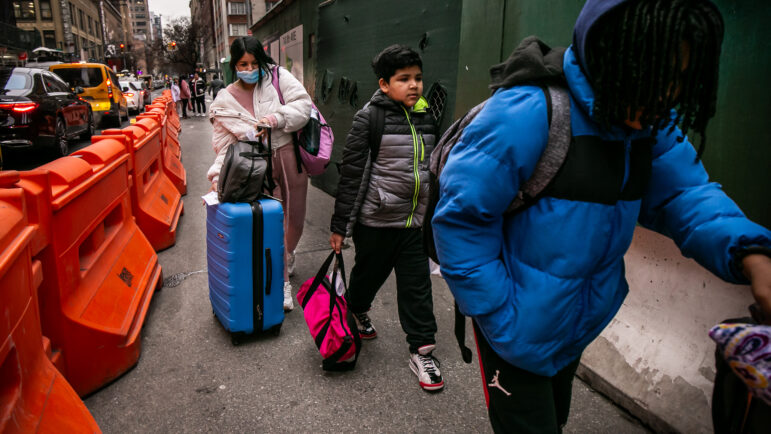The state welfare agency enacted one of the governor’s controversial welfare proposals last week, bypassing the legislature and writing the policy into agency regulations.
In effect as of last Wednesday, the new regulation reconfigures the budget of any family receiving public assistance while a household member receives SSI—Supplemental Security Income, a federal program for the disabled. The move is touted by the state Office of Temporary and Disability Assistance as a way to create a “more equitable distribution of public funds for welfare.” The agency expects to save the state about $27.5 million annually by reducing the public assistance benefits of 26,000 households by an average of $90 a month.
For Denise, a single mother of two disabled children who lives in Far Rockaway, the drop could be even steeper. Denise’s 12 year-old daughter and 8-year-old son, both of whom suffer from learning disabilities so severe they qualify for SSI, stands to see her public assistance benefits drop from $377 a month to $175. While her children will continue to receive disability benefits, Denise’s grant will no longer cover her rent—and she’ll have no cash in hand. Though she recently applied for a security job at Home Depot, she hasn’t been hired yet. In the meantime, she worries, she’ll have to dip into her children’s disability benefits for basic expenses. “I have a feeling it’s going to be rough,” she said.
Prior to the regulation change, the state would simply ignore the presence of a household member receiving SSI. Their federal benefits would not be included when determining PA eligibility, nor would they be counted as household members. The change counts SSI recipients as household members, and offers the remaining household members a pro-rated grant. So instead of Denise receiving a full grant for a household of one, she will now receive one-third of a grant for a household of three.
Though the city’s welfare agency declined to comment on the change, it has raised concerns about the proposal in the past. In a March letter to the state welfare agency, the city’s Human Resources Administration argued that though the principle was sound, the impact of the change on small families—grant reductions as large as 40 percent for some—was a “major concern.”
Assemblymember Deborah Glick, chair of the assembly’s Committee on Social Services, agrees. “They’re going to be disadvantaging the poorest families by a minimum of $90 a month,” she said, noting that advocates were exploring legal options for challenging the regulation. “I’m very disappointed.”








